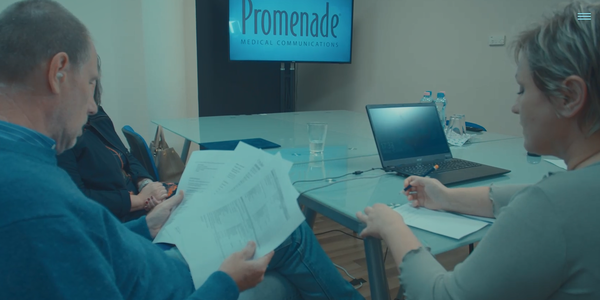- Poco X6 Pro - ötös alá
- Bemutatkozott a Moto G32 4G
- Fotók, videók mobillal
- Samsung Galaxy S23 és S23+ - ami belül van, az számít igazán
- Netfone
- iPhone topik
- Nothing Phone 2a - semmi nem drága
- Samsung Galaxy A54 - türelemjáték
- Motorola Edge 30 Neo - wake up, Jr...
- Samsung Galaxy S23 Ultra - non plus ultra
- gban: Ingyen kellene, de tegnapra
- Szevam: Érzelmi magabiztosság/biztonság - miért megyünk sokan külföldre valójában?
- bb0t: Gyilkos szénhidrátok, avagy hogyan fogytam önsanyargatás nélkül 16 kg-ot
- D1Rect: Nagy "hülyétkapokazapróktól" topik
- Sub-ZeRo: Euro Truck Simulator 2 & American Truck Simulator 1 (esetleg 2 majd, ha lesz) :)
Hirdetés
-


AMD Radeon undervolt/overclock
lo Minden egy hideg, téli estén kezdődött, mikor rájöttem, hogy már kicsit kevés az RTX2060...
-


Hamarosan indul a SERUM korai hozzáférése PC-n
gp A belső nézetes túlélőjáték premierje május végétől lesz elérhető.
-


Megbírságolták a Razert a Zephyr maszkok miatt
ph A cég elég olcsón megússza az ügyfelei félrevezetését, de az üdvözlendő, hogy az Egyesült Államok hatóságai nem siklottak el az ügy felett.
Új hozzászólás Aktív témák
-

Giovan!
addikt
válasz
 Dr. Akula
#572
üzenetére
Dr. Akula
#572
üzenetére
Látom a wikipédia nem szipmi, szóval itt a hivatalos jogi anyag-ból a market share-re vonatkozó rész:
Market Share
35. Microsoft possesses a dominant, persistent, and increasing share of the world- wide market for Intel-compatible PC operating systems. Every year for the last decade, Microsoft's share of the market for Intel-compatible PC operating systems has stood above ninety percent. For the last couple of years the figure has been at least ninety-five percent, and analysts project that the share will climb even higher over the next few years. Even if Apple's Mac OS were included in the relevant market, Microsoft's share would still stand well above eighty percent.
A továbbiakban azt is kifejtik, mi ezzel a baj (azt már nem másolom be az egészet, akit érdekel az a linken megtalálja a teljes szöveget):Microsoft's dominant market share is protected by the same barrier that helps define the market for Intel-compatible PC operating systems. As explained above, the applications barrier would prevent an aspiring entrant into the relevant market from drawing a significant number of customers away from a dominant incumbent even if the incumbent priced its products substantially above competitive levels for a significant period of time. Because Microsoft's market share is so dominant, the barrier has a similar effect within the market: It prevents Intel-compatible PC operating systems other than Windows from attracting significant consumer demand, and it would continue to do so even if Microsoft held its prices substantially above the competitive level.
Consumer interest in a PC operating system derives primarily from the ability of that system to run applications. The consumer wants an operating system that runs not only types of applications that he knows he will want to use, but also those types in which he might develop an interest later. Also, the consumer knows that if he chooses an operating system with enough demand to support multiple applications in each product category, he will be less likely to find himself straitened later by having to use an application whose features disappoint him. Finally, the average user knows that, generally speaking, applications improve through successive versions. He thus wants an operating system for which successive generations of his favorite applications will be released — promptly at that. The fact that a vastly larger number of applications are written for Windows than for other PC operating systems attracts consumers to Windows, because it reassures them that their interests will be met as long as they use Microsoft's product.
Szóval de, nagyon is az x86 alapú platformokon kialakított piaci domonanciájuk miatt lettek monopóliummal megvádolva. Még külön meg is jegyzik, hogy ha a Mac-eket is beleszámítjuk ebbe (ugyanis azok akkor PowerPC-n voltak), még akkor is bőven 80% fölött lesz a MS részesedése. Ezt pedig már akkora túlsúlynak ítélte meg a bíróság, ami már elegedendő ahhoz, hogy versenykorlátozó erőként lépjenek fel ezen, vagyis az x86-os desktop OS-ek piacán, és ellehetetlenítsék a konkurens operációs rendszereket (hosszan tárgyalja a szöveg, hogy ezt milyen eszközökkel tudja elérni a MS). Akkor sokadjára: szerinted ilyen túlsúlyal rendelkezik az iOS az ARM piacon, ahol meg ő versenyez? Komolyan vehető az az állítás szerinted, hogy az iOS túlsúlya ellehetetlenítheti mondjuk az androidot, mint konkurenciát? Vagy esetleg az, hogy az emberek iOS-re vannak kényszerítve mert a konkurencia készülékein nincs megfelelő appkínálat, meg úgy általában véve nem ér fel funkcionalitásban az iOS-hez?
Speak softly and carry a big stick, you will go far.
Új hozzászólás Aktív témák
it Korunk Robin Hoodjai sokallják az App Store-on keresztüli pénzmozgásra kivetett 30%-os jutalékot.
- Ryzen 9 5950X
- AirPods Max - Silver (Hibátlan és tökéletes állapot, tulajdonképpen új, pár napot volt használva)
- LEGJOBB ÁR! GAMER PC - RTX 3070 - Ryzen 5500 - 16GB DDR4 - 500GB Nvme SSD
- ÚJ Playstation 5 CFW képes (feltörhető), lemezes
- ÚJ Dell Vostro 3520 - 15.6" IPS 120Hz / i5-1235U / 8-16Gb DDR4 / 512Gb / HUN backlit / 3 ÉV GAR.
Állásajánlatok
Cég: Promenade Publishing House Kft.
Város: Budapest
Cég: Ozeki Kft.
Város: Debrecen











